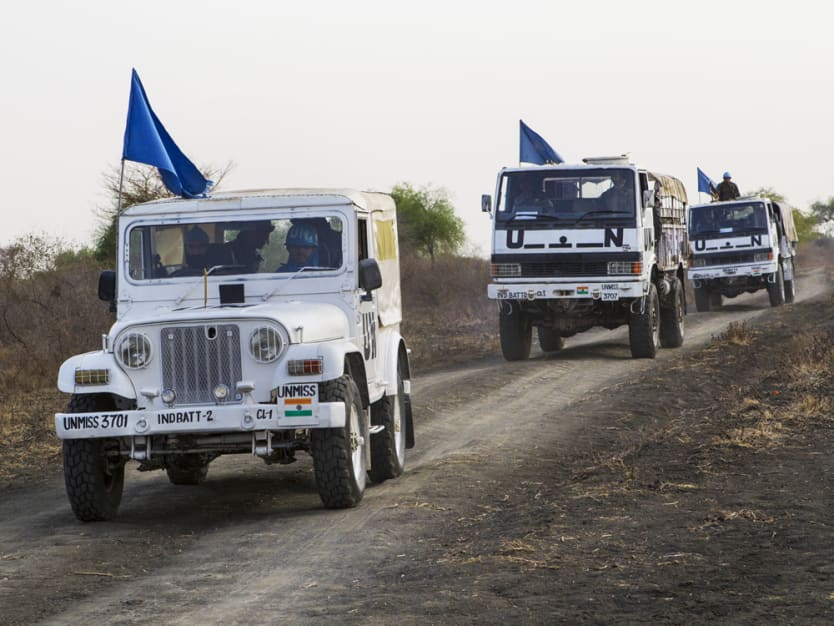
Mislabeling a humanitarian assistance package may not seem like a big deal, but it has caused quite a stir in South Sudan.
A high-level team of U.N. investigators is currently in Juba to find out exactly what happened with the transport of a cargo tagged as basic supplies for the United Nations peacekeeping force in the country.
The South Sudanese government claims the cargo included land mines, but the U.N. mission in the country insists there were only masks and respirators. In any case, the cargo should have been properly labeled and transported by air, according to an agreement between UNMISS and the local authorities.
"We made a very regrettable mistake. The containers were badly labeled; the packing was badly done," UNMISS spokesperson Ariane Quentier told Devex. "A high level delegation has arrived in Juba to conduct an investigation to understand ... what are the circumstances and make sure it does not happen again."
Quentier declined to elaborate on who was in charge of handling cargo, as well as the standard procedures for oversight.
She also declined to comment on possible sanctions to the UNMISS transport contractors if they are found to be liable: "We are not there right now, so I don't think we can go to anything hypothetical and based on speculations. Let's wait for the result of this investigation."
Delays, spot searches
Quentier did admit, however, that the controversy over the mislabeled packages is affecting aid delivery at the worst possible time for aid workers already struggling to deal with the rainy season in South Sudan.
Over the past week, several humanitarian assistance convoys and at least one airlift were delayed or prevented from reaching their destinations, an official with the U.N. Office for the Coordination of Humanitarian Assistance in Juba confirmed to Devex.
Following the UNMISS incident, authorities have also started conducting more spot searches of humanitarian convoys, sometimes “accompanied by demands for unauthorized payments and intimidation of aid staff [or] transport contractors,” the official said.
An internal document by the U.N. Department of Peacekeeping Operations obtained by Foreign Policy provides in detail some of these abuses, which appear to have been happening prior to the aid mislabeling incident.
Part of the U.N. peacekeeping mandate includes assisting in the delivery of humanitarian assistance, as well as escorting convoys and providing security to aid workers in South Sudan. Following the violence triggered by a failed coup last December, UNMISS opened its bases to thousands of civilians fleeing the conflict, and is currently helping to set up new camps to house the growing number of refugees.
But the mission’s relationship with the government has gotten sour in recent months, as authorities accuse the U.N. mission of meddling in the country’s internal affairs and perpetuating violence by supporting rebel forces.
Read more development aid news online, and subscribe to The Development Newswire to receive top international development headlines from the world’s leading donors, news sources and opinion leaders — emailed to you FREE every business day.
